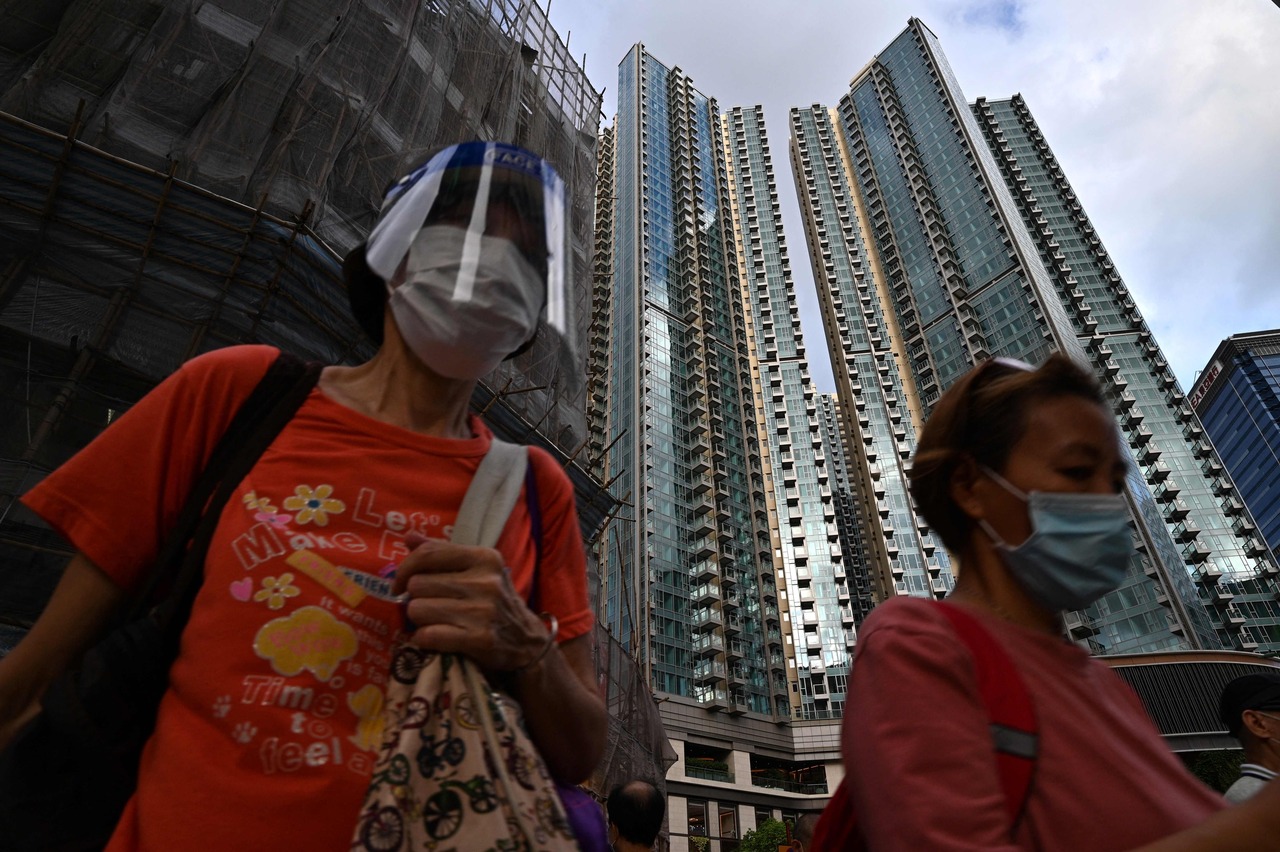Chances to win flat, gold bars, cars drive Covid-19 vaccinations in Hong Kong
Sign up now: Get insights on Asia's fast-moving developments

Developers offered vaccinated permanent residents a chance to win a flat at Grand Central in Kwun Tong.
PHOTO: AFP
Follow topic:
HONG KONG - Get a shot at winning a flat after you go for a Covid-19 jab? In Hong Kong, Christmas has come early for people as the private sector pitches in with lucky draws and eye-popping goodies to boost the vaccination rate, even as the pandemic situation has stabilised.
Since late May, Hong Kong has been flooded with announcements of giveaways - from a HK$10.8 million (S$1.87 million) flat to Mercedes-Benz cars and gold bars.
Developers Sino Group and Chinese Estate Holdings on May 28 offered vaccinated permanent residents a chance to win the 449 sq ft, one-bedroom flat at Grand Central in Kwun Tong.
The group said any stamp duty, registration and solicitor fees for the winner, as well as the property's first year management fees, would be borne by the sponsors.
Sino Group's Ng Teng Fong Charitable Foundation is giving inoculated Hong Kong residents a chance to win 20 pre-paid credit cards worth HK$100,000 each.
These carrots soon became the talk of the town, fuelling an immediate spike in the number of people who took the vaccines or made appointments to do so.
On May 28, 35,800 individuals got their jabs, up from 26,000 the previous day, while 25,600 made bookings, up from 20,200 on May 27.
On May 31, Chief Executive Carrie Lam said government employees will be entitled to a day of vaccination leave for each dose received, while social distancing restrictions will be relaxed for fully inoculated diners.
The vaccination drive looks set to speed up, with Henderson Land Development saying it would hold lucky draws dishing out gold bars, while tycoon Li Ka Shing's foundation and CK Group are jointly offering cash vouchers of between HK$50,000 and HK$5 million.
The Hong Kong General Chamber of Commerce and its sponsors offered three Mercedes-Benz C-class cars.
So far, 25 per cent, or 1.9 million, of the 7.5 million population have received at least one shot, while more than 1.2 million have had two since the inoculation programme started on Feb 26.
The high vaccine hesitancy, despite easy access to a choice of either a Sinovac or BioNTech jab, is led by fears of adverse reactions and deaths.
The Department of Health on May 21 received 2,890 reports of adverse events, or 0.15 per cent of the total vaccine doses administered. These included 20 deaths, or 0.001 per cent of all doses given, where the vaccine was taken within 14 days before they died.
The expert committee tasked to look into the matter concluded that five of the 20 who died had no causal relationship with the vaccination and preliminarily considered that 15 cases were not associated with the inoculation.
Health experts and critics have also pointed to the lack of trust in the government as another factor for people dragging their feet.
With some of the BioNTech jabs set to expire in August, officials have been urging people to not adopt a wait-and-see approach.
Said Dr Leung Chi Chiu of the Hong Kong Medical Association: "As long as we can clarify the misunderstanding over safety, the vaccine uptake will go up when people see more and more successful vaccinations among people surrounding them."
The respiratory medicine specialist added that with the incentives being introduced, the momentum for getting protection is building up.
Calls for vaccine passports have grown, with government health adviser David Hui saying in March that should Hong Kong enter into such agreements, those who are inoculated should be exempted from quarantine within six months of the jabs.
This is because those who have recovered from Covid-19 should develop antibodies that last at least six months and those who are vaccinated are expected to have antibodies that last a year.
The Hong Kong government has been pushing for residents to get inoculated as it struggles to reopen borders and revive its economy. Against a low base, the economy recovered in the first quarter of 2021, with gross domestic product rising year on year by 7.9 per cent, led by very strong growth of exports.
But the overall economic activity remains below the pre-recession level, as the pandemic, social distancing requirements and travel restrictions continue to weigh on sectors such as tourism and hospitality.
The authorities are looking to see if they can shorten hotel quarantines for fully vaccinated travellers from most places to seven days if they pass an antibody test, Bloomberg reported.
Citing sources, the report said the authorities are trialling antibody tests - which confirm that a person has been vaccinated or recovered from Covid-19 - like those that require a prick of the finger.
Currently, travellers to Hong Kong have to undergo quarantine in a hotel for up to 21 days, vaccinated or not.
The city's pandemic situation has been under control for weeks now and has so far recorded more than 11,800 confirmed infections and 210 deaths.

